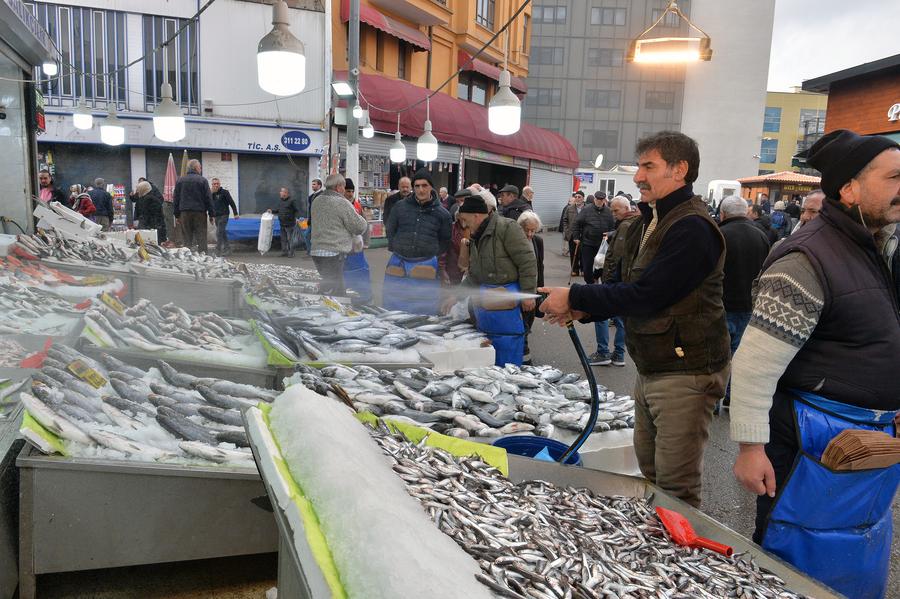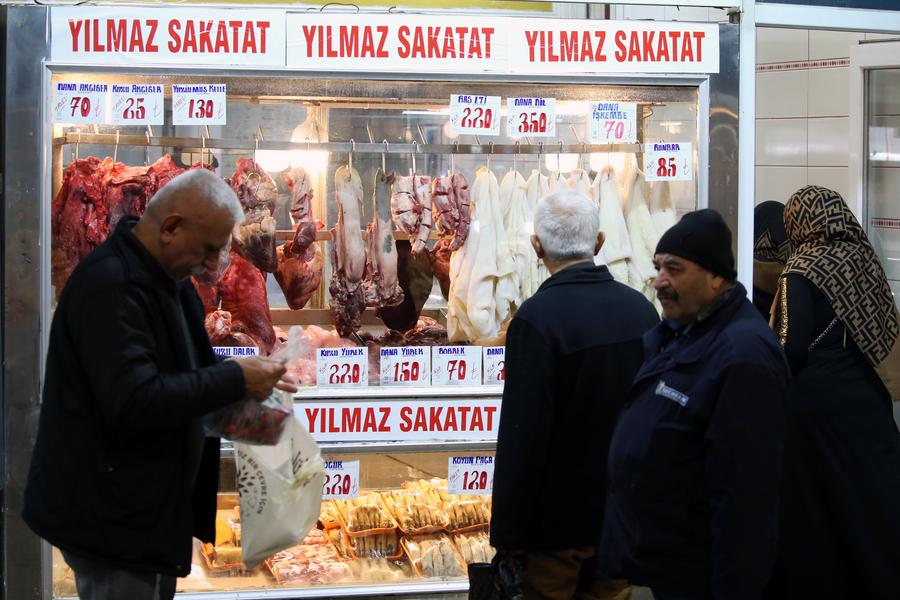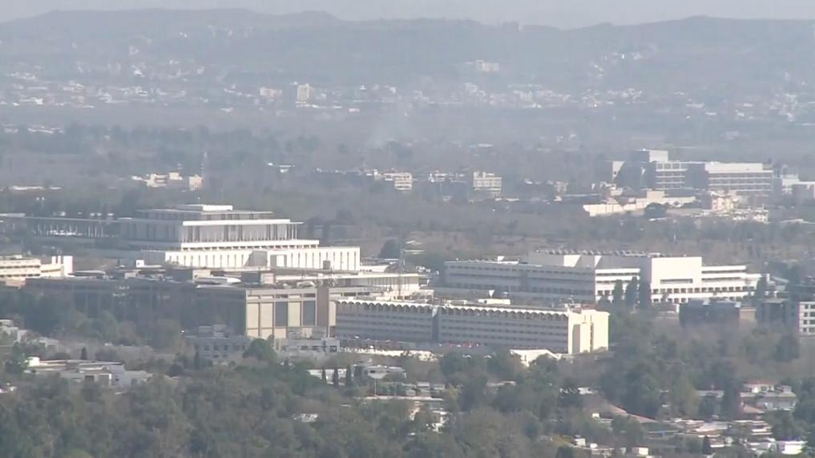
by Burak Akinci
ANKARA, Feb. 10 (Xinhua) -- Türkiye's tight monetary policy overhaul is expected to pay off later this year with a big fall in consumer prices, the country's new central bank chief has stressed, despite a less confident inflation outlook from analysts.
In his first public appearance in the capital city of Ankara on Thursday, days after his appointment, Turkish Central Bank Governor Fatih Karahan said the tight policy would be maintained until a significant improvement is achieved in taming high inflation.
"Our primary goal is to maintain price stability. We are determined to maintain the necessary monetary tightness until inflation falls to levels consistent with our target," he noted.
Citing a smear campaign on social media, the former central bank chief Hafize Gaye Erkan resigned on Feb. 2, just eight months into her tenure, and was replaced by her deputy Karahan.
Following the shake-up, Turkish Treasury and Finance Minister Mehmet Simsek swiftly assured markets and investors that monetary policy will remain intact.

The new central bank governor kept the year-end inflation forecast at 36 percent, while pointing out that the government's huge minimum wage hike in January increased inflation pressures.
He expects inflation to peak at around 73 percent in the second quarter of 2024 and begin to decline afterward, adding targets for 2025 and 2026 have also been maintained at 25 percent and 9 percent, respectively.
However, some analysts were not impressed by Karahan's predictions.
Mustafa Sonmez, a Turkish economist and writer, commended the bank's resolve to maintain course but said the year-end targets were not realistic.
"Türkiye's (economic) dynamics won't allow inflation to drop to 36 percent at the end of the year," Sonmez told Xinhua.
He argued that food and housing inflation was very high in Türkiye, putting significant pressure on households struggling to make ends meet.
Türkiye raised its minimum wage by 49 percent this year in an attempt to ease the cost of living burden for citizens.
The move was made ahead of the nationwide municipal elections scheduled for March, during which President Recep Tayyip Erdogan's ruling party will try to win back major cities, including Ankara and Istanbul, that the party lost to its main opposition in the 2019 elections.
In Sonmez's view, energy prices "shoved under the rug ahead of the ballot" will rise significantly after the elections, fueling further inflation throughout the year. "Therefore, the central bank's inflation targets will not be met," he added.
Karahan also said Thursday that the current level of Türkiye's policy interest rate will be maintained as long as needed.
Since summer 2023, in line with a bold policy reversal, the central bank hiked interest rates from 8.5 percent to 45 percent to tame stubborn inflation.
The bank announced last month the end of the tightening cycle, saying conditions had been sufficient to start easing the cost of living crisis.
Yet, in January, inflation logged its biggest monthly jump of 6.7 percent since last August, while year-on-year inflation hit nearly 65 percent.
"Inflation figures show that it will not be easy to restrain price increases due to both the base effect and the resistance of core inflation," Emre Alkin, a professor of economics at Istanbul's Topkapi University, said in his blog.
"Based on this, we can say that the 36 percent forecast is not likely and will be revised upwards after the elections," the expert said.
Senol Babuscu, a professor of finance from Ankara's Baskent University, echoed Alkin's remarks, telling Xinhua that despite an expected drop in the summer, inflation will remain stubborn throughout 2024.
In line with other economists' views, he said that "cash-strapped households will face a wide range of price hikes after the municipal elections," which will raise the inflation rate to higher levels. ■












